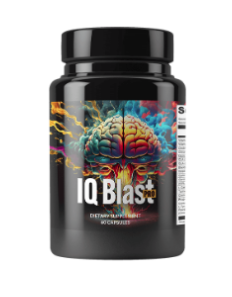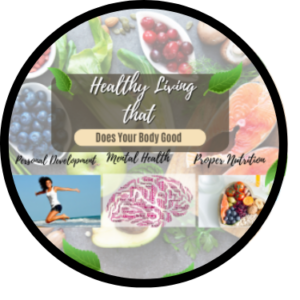Nutrition for Brain Health:The Benefits of Foods to Support Memory and Focus
Health & Wellness Specific, Health and Wellness News, NutritionNutrition for Brain Health: Foods to Support Memory and Focus
In a world where mental clarity, sharp memory, and focus are key assets, brain health is more important than ever. Fortunately, emerging research has shown that our diet can play a powerful role in shaping our cognitive function and supporting long-term brain health. By including foods that are high in antioxidants, omega-3 fatty acids, and essential vitamins, we can boost our brain’s resilience, protect it from damage, and even enhance our ability to learn and remember. This guide will dive deeper into the foods that support memory and focus, examine the science behind each nutrient, and provide practical ways to incorporate these powerful foods into your daily meals.
Key Nutrients for Brain Health
1. Antioxidants
Why They Matter: Our brains are highly susceptible to oxidative stress because of their high oxygen demand. Oxidative stress creates free radicals—unstable molecules that damage cells, proteins, and DNA, leading to faster cognitive aging and an increased risk of neurodegenerative diseases like Alzheimer’s. Antioxidants are nature’s defense against these free radicals, neutralizing them and reducing oxidative damage.
Top Foods:
- Berries: Blueberries, strawberries, and blackberries are rich in flavonoids, which are plant-based antioxidants that have been shown to improve memory and reduce age-related cognitive decline.
- Dark Chocolate: The high levels of flavonoids in dark chocolate have been linked to increased blood flow to the brain, which can improve cognitive function and reduce mental fatigue.
- Leafy Greens: Spinach, kale, and collard greens contain antioxidants like beta-carotene and vitamin C, known for their ability to reduce oxidative stress and support brain health. Scientific Evidence:
A study published in Annals of Neurology found that older women who consumed two or more servings of berries per week experienced delayed memory decline by up to two and a half years compared to women who ate fewer berries. The researchers believe this delay is due to the flavonoid content in berries, which enhances brain connectivity and supports memory retention (Harvard Health Publishing, 2021). Practical Tip:
Add a handful of berries to your morning oatmeal or smoothie for a brain-boosting start to your day. Dark chocolate makes for a satisfying dessert or snack, ideally containing at least 70% cocoa for the maximum antioxidant benefit. IQ Blast Pro Is A Natural Memory Enhancing Supplement
2. Omega-3 Fatty Acids
Why They Matter: Omega-3 fatty acids, particularly DHA (docosahexaenoic acid), are essential for brain cell structure and signaling. These fats make up a significant portion of brain cell membranes and contribute to cell fluidity, which enhances the brain’s ability to send and receive signals. DHA is essential for memory, focus, and mood regulation, while EPA (eicosapentaenoic acid) helps manage inflammation in the brain, which has been linked to improved mental clarity and emotional balance.
Top Foods:
- Fatty Fish: Salmon, trout, and sardines are some of the richest sources of DHA and EPA, two omega-3s directly linked to brain health.
- Chia Seeds and Flaxseeds: These plant-based sources of ALA (alpha-linolenic acid), a type of omega-3, can be converted into DHA and EPA in small amounts by the body.
- Walnuts: Not only do walnuts contain omega-3s, but they also have antioxidants, making them a powerful brain food. Scientific Evidence:
Research from the Journal of Alzheimer’s Disease showed that omega-3 supplementation was associated with improved cognitive function in older adults, particularly in memory and executive function. Additionally, a study published by the NIH found that higher blood levels of DHA correlated with larger brain volumes and a 47% reduced risk of developing Alzheimer’s disease. Practical Tip:
Include two servings of fatty fish per week, as recommended by the American Heart Association. If you’re vegetarian or vegan, add chia seeds or flaxseeds to your diet daily by sprinkling them on salads, yogurt, or smoothies.

3. B Vitamins (B6, B12, and Folate)
Why They Matter: B vitamins are essential for energy production, neurotransmitter function, and overall brain health. Vitamin B6 is required for the synthesis of neurotransmitters like serotonin and dopamine, which affect mood and cognition. Vitamin B12 supports nerve health and is crucial in preventing brain atrophy. Folate (B9), especially important during pregnancy, plays a role in cognitive development and long-term brain health.
Top Foods:
- Eggs: Rich in B12 and choline, eggs support memory by aiding in the production of acetylcholine, a neurotransmitter associated with learning.
- Leafy Greens and Legumes: Spinach, kale, and beans are high in folate, which reduces homocysteine levels linked to cognitive decline.
- Whole Grains: Foods like brown rice and oats provide B6, which is involved in brain energy production and neurotransmitter regulation. Scientific Evidence:
A randomized controlled trial published in Proceedings of the National Academy of Sciences demonstrated that B vitamin supplementation over a two-year period significantly reduced brain shrinkage in elderly individuals at risk for dementia. Further research published in the American Journal of Clinical Nutrition found that high homocysteine levels were associated with brain shrinkage and that B vitamins, particularly folate, can lower homocysteine levels, potentially protecting against cognitive decline. Practical Tip:
Start your day with a hearty breakfast of scrambled eggs, whole-grain toast, and spinach. Incorporating whole grains and leafy greens into meals throughout the day can further support your brain.
Brain-Boosting Recipes
Blueberry Walnut Overnight Oats
Ingredients:
- 1/2 cup rolled oats
- 1/2 cup milk (dairy or plant-based)
- 1/4 cup blueberries (antioxidants)
- 1 tbsp chia seeds (omega-3s)
- 1 tbsp chopped walnuts (omega-3s)
- A drizzle of honey or maple syrup Directions:
Combine oats, milk, blueberries, chia seeds, and walnuts in a jar or bowl. Stir well and refrigerate overnight. This easy, nutrient-dense breakfast offers antioxidants, omega-3s, and fiber to fuel your brain all morning.
Salmon with Spinach and Quinoa
Ingredients:
- 1 salmon fillet (omega-3s)
- 1 cup spinach (antioxidants and folate)
- 1/2 cup cooked quinoa (B vitamins)
- Olive oil and lemon juice Directions:
Grill or pan-sear salmon, and serve over a bed of quinoa and spinach. Drizzle with olive oil and a squeeze of lemon. This quick meal is packed with brain-supporting nutrients that boost memory, protect cells, and fight inflammation.
Spinach, Egg, and Avocado Breakfast Wrap
Ingredients:
- 1 whole-grain wrap
- 1 egg (B12 and choline)
- 1/2 avocado (healthy fats)
- A handful of spinach (antioxidants and folate) Directions:
Scramble the egg and add it to the wrap with spinach and avocado. This easy-to-prepare wrap provides B vitamins, antioxidants, and healthy fats to support brain health.
*
Inspiration for the Journey to Brain Health
Eating to support cognitive function is a proactive approach that can benefit people of all ages. Beyond supporting memory and focus, these nutrients can improve your mood, reduce stress, and support your brain’s resilience over the years. The foods listed above aren’t just good for your brain—they’re beneficial for your whole body. By choosing nutrient-dense foods and creating balanced meals, you are investing in your mental and physical health for the long run.
Additional References
- Harvard Health Publishing. “How the foods you eat affect your brain.” (2021).
- National Institutes of Health. “Omega-3 Fatty Acids in the Treatment of Cognitive Function and Dementia.”
- Journal of Alzheimer’s Disease (2016). “Effects of Omega-3 Fatty Acids on Cognitive Decline in Older Adults.”
- Proceedings of the National Academy of Sciences (2012). “B vitamins and Brain Shrinkage in Mild Cognitive Impairment.”
- American Journal of Clinical Nutrition (2010). “Homocysteine, Folate, and Cognitive Function in Aging.”
Incorporating these foods doesn’t have to be complicated. Small changes, like adding a handful of walnuts to a salad or swapping in leafy greens as a side, can make a world of difference. The path to better brain health is both achievable and delicious. Start today, and your brain will thank you tomorrow!



